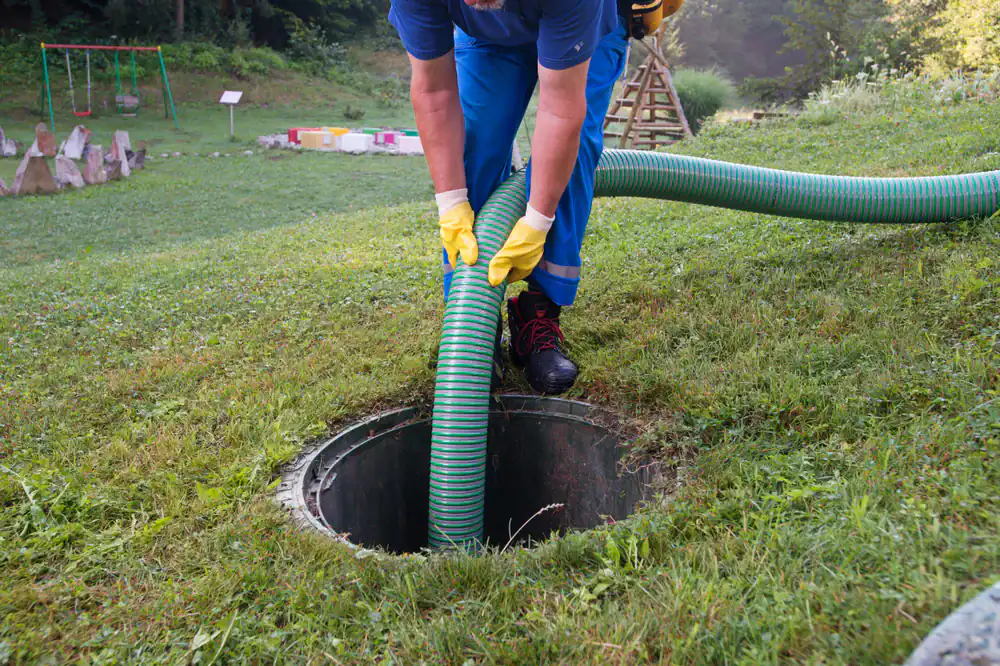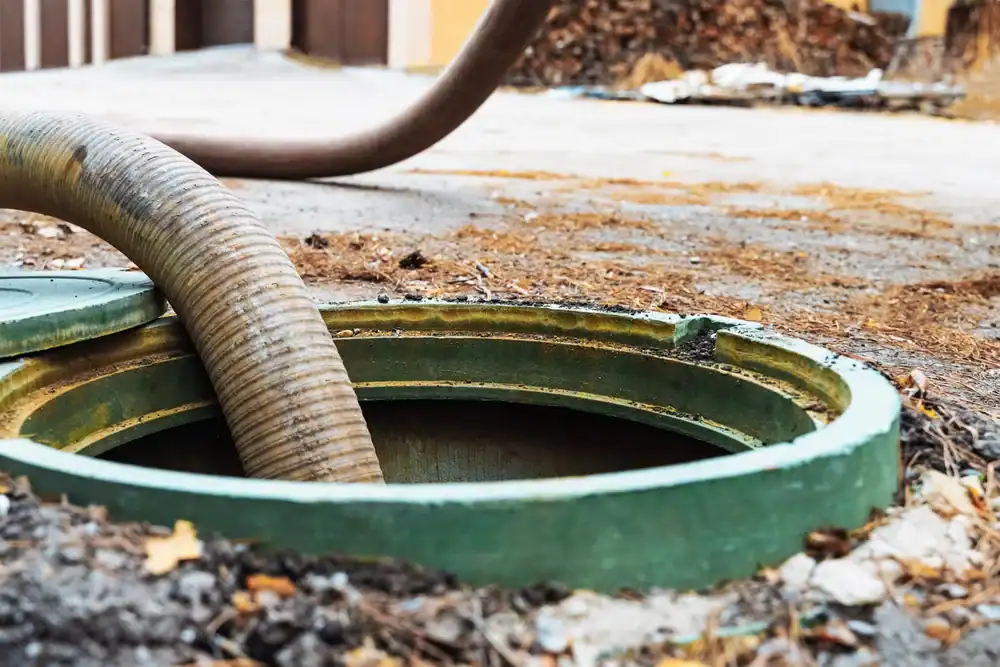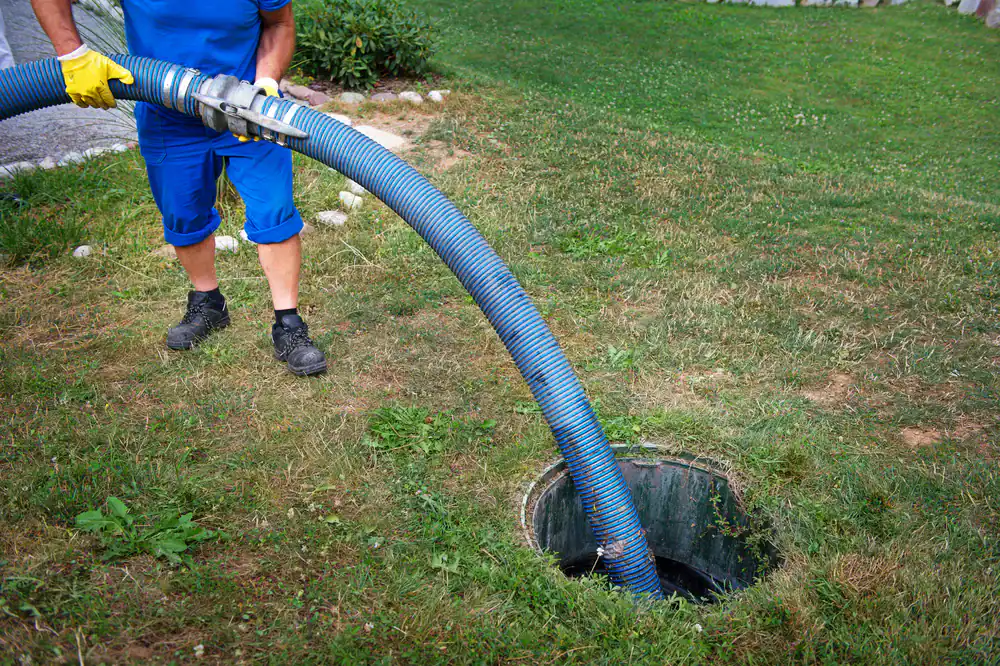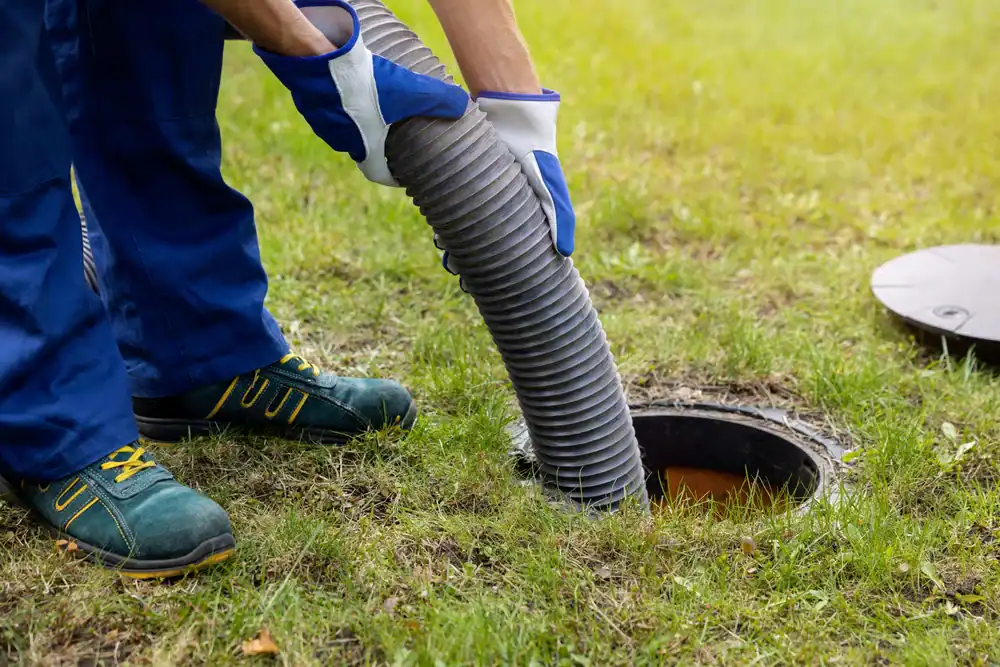
Our Reviews

You get a septic system that works when you need it to. No more worrying about unexpected failures, sewage backups, or expensive emergency repairs that could have been prevented.
Your system stays compliant with Illinois regulations, protecting you from fines and keeping your property value intact. Regular professional septic tank cleaning means your family stays safe from health hazards and your investment stays protected.
When your septic system is properly maintained, you sleep better knowing everything is working as it should be.
All Rooter Hydro Jetting Experts has been serving Chicago-area homeowners with reliable septic system maintenance for years. We’re licensed by the Illinois Department of Public Health, bonded, and insured, so you know the job gets done right.
Our team understands the unique challenges of septic systems in McQueen and surrounding areas. We’ve seen what happens when systems aren’t properly maintained, and we know how to prevent those problems before they start.
When you call All Rooter, you’re working with professionals who show up on time, explain what needs to be done, and give you upfront pricing so there are no surprises.

First, our team inspects your septic tank to assess the current condition and determine what needs to be done. We check scum and sludge levels to see if pumping is needed and look for any potential issues.
Next, we pump out accumulated solids and liquids using professional-grade equipment. The process is clean, efficient, and designed to minimize disruption to your property.
After pumping, we inspect the tank components, including baffles and filters, to ensure everything is functioning properly. You get a clear explanation of what was done and recommendations for future maintenance to keep your system running smoothly.

Ready to get started?
Your septic tank cleaning includes thorough pumping of accumulated solids and liquids, inspection of all tank components, and cleaning of effluent filters. Our team checks for signs of damage or wear that could lead to future problems.
In McQueen, septic systems face unique challenges from Illinois weather patterns and soil conditions. Heavy rains can saturate the ground and affect system performance, while freezing temperatures can impact components. We understand these local factors and adjust our service accordingly.
Emergency septic pumping is available 24/7 because septic problems don’t wait for convenient times. Whether you’re dealing with backups, odors, or system alarms, our team responds quickly to minimize damage and restore proper function.

Most septic tanks in McQueen need cleaning every 3-5 years, but the exact timing depends on your household size, water usage, and tank size. Illinois regulations require system evaluations within 3 years of installation and every 5 years after that.
A family of four with a 1,000-gallon tank typically needs pumping every 3-4 years. Larger households or smaller tanks need more frequent service. Heavy water usage from things like hot tubs or frequent laundry loads can also increase the need for more frequent pumping.
The best approach is to have your system inspected annually so you know exactly when pumping is needed, rather than guessing and risking an overflow.
Skipping regular septic tank cleaning leads to serious problems that cost much more than routine maintenance. When solids build up too high, they can clog your drainfield, causing sewage to back up into your home or surface in your yard.
A failed drainfield often requires complete replacement, which can cost $10,000 or more compared to a few hundred dollars for regular pumping. You’ll also face health risks from exposure to raw sewage and potential groundwater contamination.
Illinois regulations require proper septic system maintenance, so neglecting your system can result in fines and legal issues. Regular cleaning prevents these expensive problems and keeps your system working properly for decades.
Several warning signs indicate your septic tank needs immediate attention. Slow drains throughout your house, gurgling sounds from plumbing fixtures, or sewage odors inside or outside your home all signal potential problems.
Standing water or wet, spongy areas around your drainfield, especially during dry weather, often mean your system is failing. If you notice sewage backing up into sinks, tubs, or toilets, your tank is likely full and needs emergency pumping.
The most reliable approach is regular inspection rather than waiting for problems. A professional can measure sludge and scum levels to determine exactly when pumping is needed, preventing emergency situations.
No, septic tank additives are not necessary and may actually harm your system. The natural bacteria in your septic tank already break down waste effectively without any help from commercial products.
Many additives claim to reduce pumping frequency, but no independent studies have proven these benefits. Some additives can actually disrupt the natural bacterial balance in your tank or contaminate groundwater.
The Illinois Department of Public Health and local health departments generally don’t recommend septic tank additives. Regular pumping, proper water usage, and avoiding harmful chemicals down your drains are the best ways to maintain your system.
Heavy rains can overwhelm septic systems, especially if the ground becomes saturated and prevents proper drainage. If you notice backups or odors during storms, reduce water usage immediately and avoid using non-essential appliances like dishwashers and washing machines.
Don’t pump your septic tank during flooding, as the tank can actually float out of the ground when the surrounding soil is saturated. Wait for water levels to recede before having the system serviced.
After flooding, have your system professionally inspected before returning to normal use. Flood water can damage components and introduce contaminants that affect system performance. Emergency service is available 24/7 to address urgent problems safely.
Septic tank cleaning costs in McQueen typically range from $300-$600, depending on tank size, accessibility, and how much waste needs to be removed. Larger tanks or those that haven’t been cleaned in many years cost more due to the extra time and disposal fees.
Emergency pumping services cost more than scheduled maintenance, which is why regular cleaning saves money in the long run. Additional services like filter cleaning or minor repairs may add to the base cost, but you’ll know the price upfront before any work begins.
The cost of regular maintenance is minimal compared to septic system replacement, which can run $15,000-$25,000 or more. Investing in proper cleaning protects your much larger investment in the entire system.